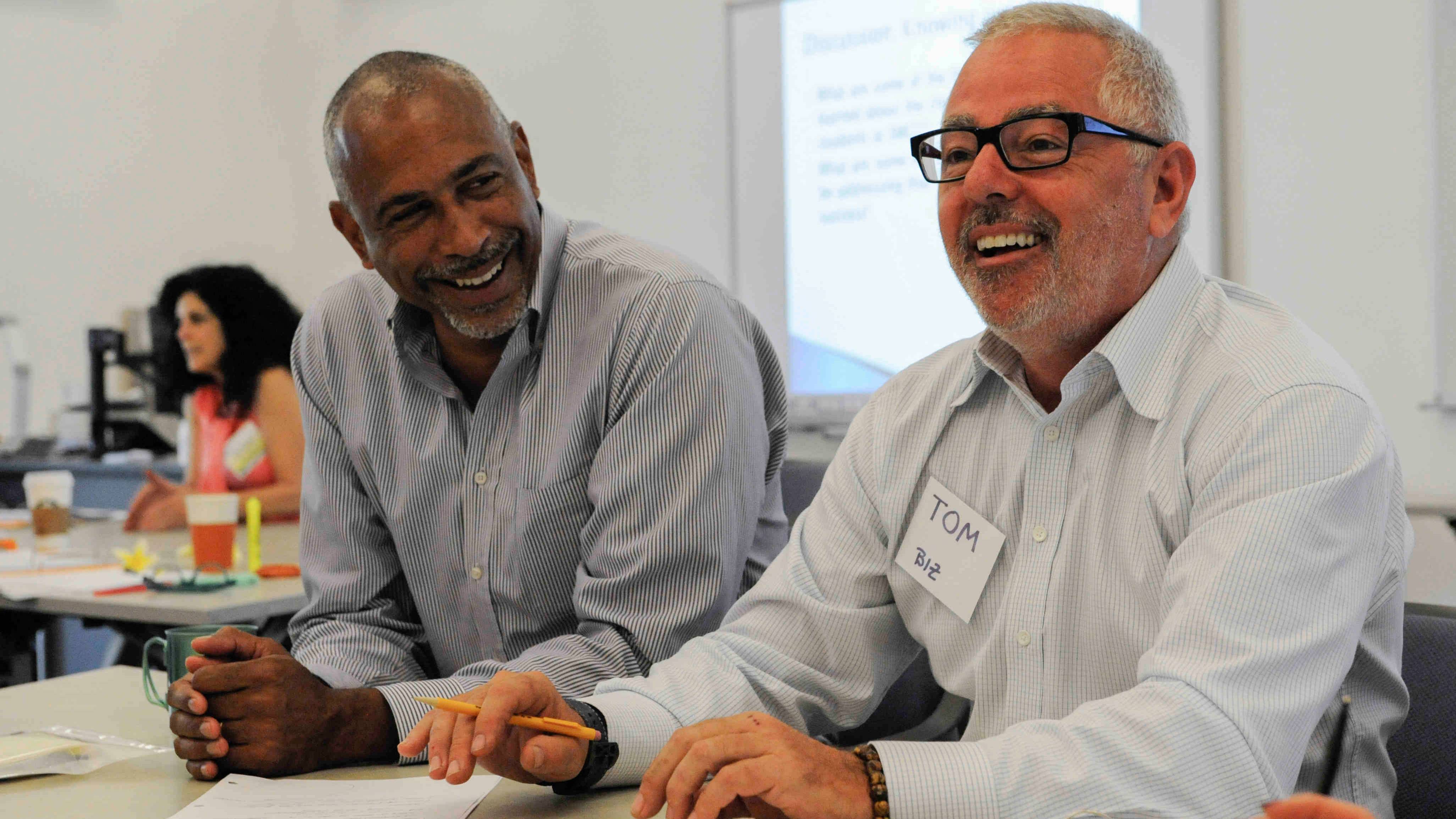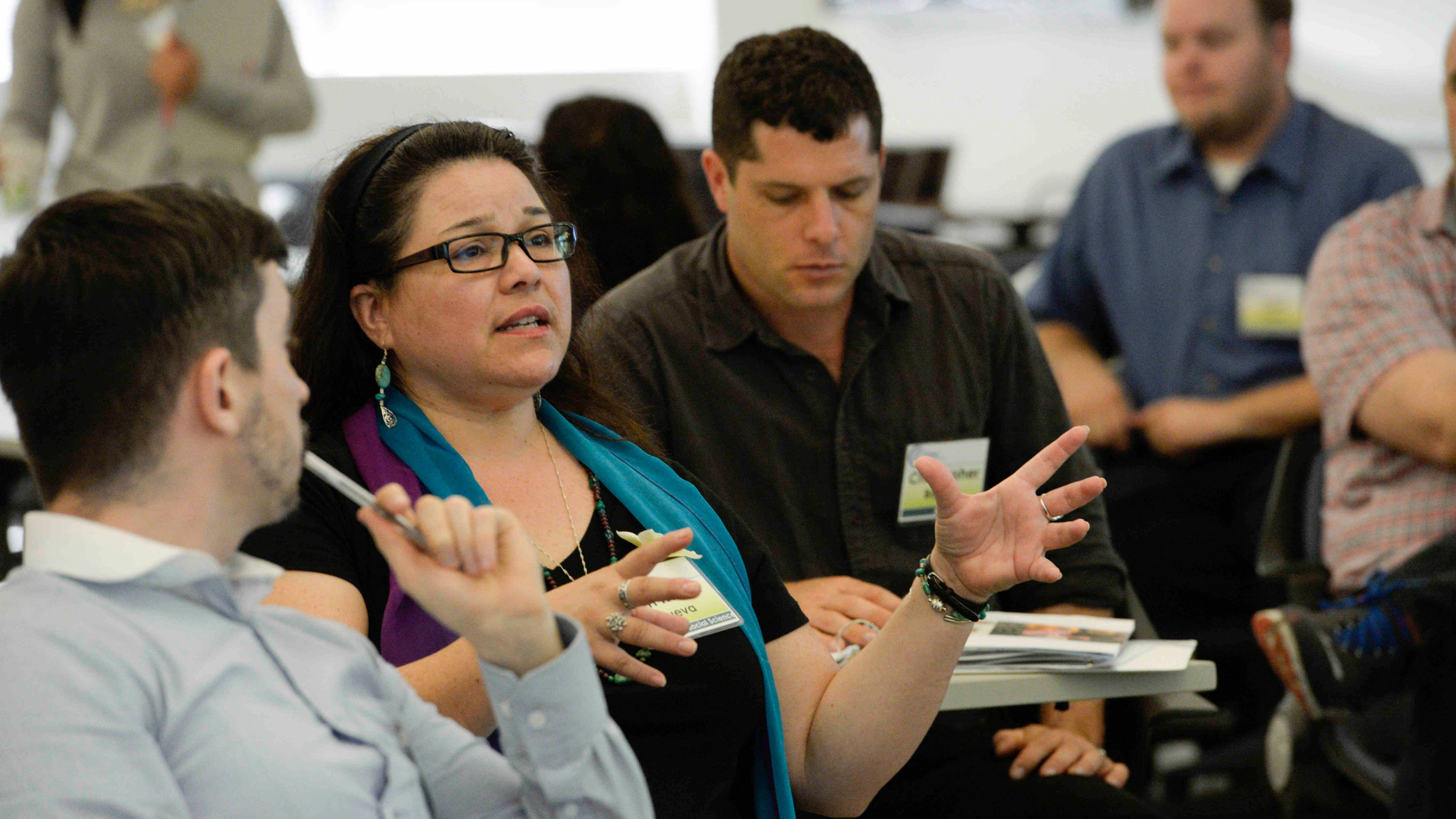November 3, 2015
Teaching is Also Learning at Center for Teaching Excellence

Lynn Dickinson respected and loved persity, but she did not know how to “teach to it.” The Communication Studies professor joined Santa Monica College (SMC) in 2013, fresh from a media industry background that included working as editorial director for Hollywood.com and a stint as a tour publicist for Weird Al Yankovic.
 New to teaching then, Dickinson applied to a “Faculty Summer Institute (FSI)” organized by the SMC Center for Teaching Excellence. The two week institute brings selected faculty together for workshops where they
hear from experts on better ways to reach students – to help them succeed.
New to teaching then, Dickinson applied to a “Faculty Summer Institute (FSI)” organized by the SMC Center for Teaching Excellence. The two week institute brings selected faculty together for workshops where they
hear from experts on better ways to reach students – to help them succeed.

“It raised my intercultural competence, and I realized that all my students are unique,” says Dickinson. “Now, I try to teach in as many ways as possible.”
“In the short time that I have come to know the faculty at SMC, I have been impressed by their openness to exploring new approaches to teaching and their dedication to students,” says Dr. Pedro Noguera, Distinguished Professor of Education at UCLA, and one of the nation’s most recognized voices on public education reform. “With such an amazing group of educators, it is hardly surprising that SMC has become recognized as a leader in higher education.”
The Center for Teaching Excellence is funded by a federal grant for colleges like SMC that serve a large number of Latino/Hispanic students. The Center works to support faculty who teach basic skills, transfer, and career technical education courses.
Music professor Brian Driscoll was one of 42 instructors who participated in the Center’s FSI this year, and found the tools he needed to remedy what he already knew; that his students were too perse to allow a “one size fits all” approach.
“Now, I feel more comfortable and capable of helping students address the non-musical challenges that they face in their education,” says Driscoll. “It inspired me to do a complete overhaul of course materials and change the way I create classroom experiences.”

English professor Elisa Meyer – another FSI participant – says she went from being an “effective instructor” to an “empowered and proactive” one.
“I learned these new reading apprenticeship methods that I have used in my pre-transfer-level English classes,” says Meyer. “Before I implemented these strategies, I’d been hearing students say that they realized they haven’t been reading – or that they didn’t understand – a text, and this illustrates the value of challenging my teaching methods.”
“You have to pour yourself into it, show that you care,” says Math professor and former Center faculty leader John Quevedo. “And not just show it, you genuinely need to care.”
There is a little rock that sits on Quevedo’s desk with the words “Positive Mental-Math Attitude” painted on it, which serves as a conversation starter with students. A large percentage of incoming students are at the basic skills, pre-college level, and Quevedo understands that there are circumstances outside the classroom that can stand in the way of success in the classroom.
“What the Center does is make sure that faculty have the support and safe space they need to talk about challenges they face,” says Roberto Gonzalez, SMC Dean for Student Success Initiatives.
ESL professor Keith Graziadei, another Center faculty leader, trains his colleagues to use new technology in their classrooms.
“I’m always looking for new things to do… what can I do to make my teaching more effective?” says Graziadei. He uses a tool called Camtasia to video mini lectures for his students to supplement their reading assignments.
Edna Chavarry, Interim Director of Academic Affairs Initiatives, believes the Center is one of the things that set SMC apart from other community colleges, and from many private ones.
“By creating a space for instructors to experiment with the craft of teaching, SMC proves that it is a place where learning does not stop with students,” says Chavarry.
For more information on the Center’s activities, email Chavarry_Edna@smc.edu or call 310-434-8719. Visit www.smc.edu/center to discover all the ways the Center for Teaching Excellence is supporting excellent teaching at Santa Monica College.
Santa Monica College is a California Community College accredited by the Accrediting Commission for Community and Junior Colleges (ACCJC) of the Western Association of Schools and Colleges (WASC).

